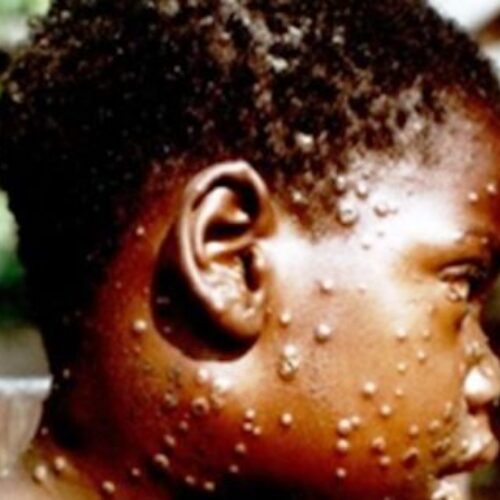Global maritime security: Gulf of Guinea States set to tackle trafficking, piracy, other crisis
With a growing number of incidents of piracy, the epicentre of global piracy has gradually shifted into the Gulf of Guinea, adding further to the multi-dimensional security threats faced by the region.
This trend has found many coastal countries insufficiently prepared in terms of their capacity to effectively prevent and counter attacks carried out by pirates within and beyond their coastal waters. Moreover, all types of trafficking flows through the Gulf of Guinea continue to constitute a major breeding ground for transnational organized crime operating across the region and globally with devastating effects on the people of the region.
The West African opioid epidemic is primarily fueled by the smuggling of tramadol by sea. The amount of tramadol seized in Nigeria – mostly at its ports – rose from less than eight tons in 2014 to close to 150 tons in 2018. In the whole of West Africa more than 430 tons of tramadol have been seized in the period between 2014 and 2017, with tramadol seizures being recorded in Benin, Cote d’Ivoire, Ghana, Guinea, Niger, Nigeria and Togo. West Africa is accounting for three quarters of all tramadol seized globally.
Another trafficking flow appearing to be on a steep rise concerns wildlife and forestry products, including ivory, pangolin scales and rosewood. According to media reports, in 2018 and early 2019 more than 37 tons of mostly pangolin scales were seized, all allegedly originating from Lagos sea ports.
This marks a sharp increase sharp from the less than eight tons of pangolin scales seized in 2016 and 2017 by all States parties to the Convention on International Trade in Endangered Species (CITES) collectively. Further, West African waters are abundant with high prized seafood and are estimated to have one of the highest number of incidents of illegal, unregulated and unreported fishing in the world, representing up to 37% of the region’s total catch.
Recent efforts taken by some countries to strengthen their legal, institutional and operational response are laudable, but are yet to show their full impact. A massive gap remains in terms of bringing captured pirates to justice, identifying their financiers and trace, seize and confiscate their illicit proceeds. This gap is most glaring when comparing the more than 1400 convictions obtained against pirates captured off the Horn of Africa and in the Indian Ocean against none so far in the Gulf of Guinea.
One of the fundamental stumbling blocks remains the inadequacy of the legal framework. Many countries in the region are yet to fully domesticate the relevant provisions of the United Nations United Nations Convention on the Law of the Sea (UNCLOS). According to legal assessments carried out by UNODC in 12 countries of Central and West Africa between 2014 and 2019, only a few national frameworks fully met the requirements of UNCLOS in terms of criminalizing piracy and establishing universal jurisdiction. Thus, successful investigations leading to effective prosecutions remain rare, making maritime crime in general and maritime piracy in particular a low risk high reward criminal activity.
Attacks at sea in the Gulf of Guinea have passed through various transformations and are becoming increasingly complex and violent, similar and possibly exceeding what was previously experienced in East Africa. In order to counter this threat andimprove criminal justice responses to maritime crime, legal frameworks need to follow the quick evolution of criminal offences committed at sea by creating new regulations, improving the quality of existing legal instruments, as well as by updating key definitions in line with the UNCLOS, in particular its Article 101 on piracy and its Article 105 on universal jurisdiction. The lack of a harmonized legal framework across the countries of the region also presents a challenge to international cooperation. Dual criminality requirements may hinder countries to effectively cooperate and potentially create safe havens for pirates.
Further, in view of the high prevalence of crime, other than piracy, committed at sea, it would seem opportune for countries in the region to consider expanding their relevant authorities’ jurisdiction under the international treaties aimed at curbing transnational organized crime and drug trafficking, such as the 1988 Vienna Convention against Illicit Traffic in Narcotic Drugs and Psychotropic Substances and the United Nations Convention against Transnational Organized Crime and its Protocols on the Trafficking in Persons, the Smuggling of Migrants, and the Illicit Manufacturing and Trafficking of Firearms,
.
In this context, States from the Gulf of Guinea currently gathered in Abuja for the 2019 Global Maritime Security Conference should:
- As a priority, ratify and fully domesticate the provisions of theUnited Nations Convention on the Law of the Sea, in particular its Article 101 on piracy and Article 105 on universal jurisdiction;
- Ensure that offences, other than piracy, committed at sea established under domestic law meet the requirements of “serious offence” as defined by Art. 2 of the United Nations Convention against Transnational Organized Crime; and that the countries’ criminal justice authorities have jurisdiction even when such offences are committed in international waters;
- Criminalize auxiliary offenses supporting acts of piracy, including its financing, providing all forms of logistical support, as well the laundering of the proceeds of piracy;
- Ensure that the legal framework tackling the proceeds of crime, including provisions on asset tracing, seizure, forfeiture and confiscation are aligned with the respective provisions of the United Nations Convention against Transnational Organized Crime and apply to piracy and other maritime crimes;
- Consider the introduction of Non-Conviction Based Forfeiture, and where already existent ensure its application to the proceeds of maritime crime.
- Draft and implement an addenda to the Harmonized Standard Operating Procedures focused on evidence collection.







0 Comments
No Comments Yet!
You can be first to comment this post!